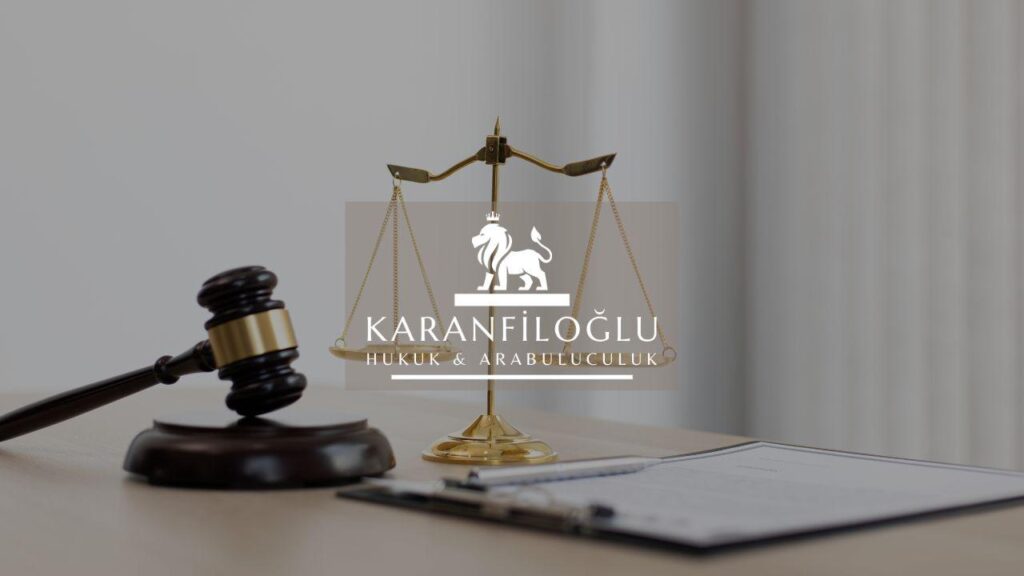Navigating a medical malpractice case in Turkey requires a comprehensive understanding of the legal framework governing healthcare negligence and patient rights. As per the Turkish Code of Obligations No. 6098 and the Turkish Penal Code No. 5237, patients who have suffered harm due to medical malpractice are entitled to seek compensation and hold healthcare providers accountable. At Karanfiloglu Law Office, we specialize in representing clients in such complex matters, ensuring that their claims are built upon solid legal grounds. Our experienced legal team meticulously analyzes each case to substantiate the occurrence of malpractice and to demonstrate the breach of care as required by law. Moreover, we guide our clients through the intricate procedures of filing claims with relevant medical and legal authorities, ensuring compliance with all procedural requirements under Turkish Law. By partnering with us, you can rest assured that your medical malpractice case will be handled with utmost diligence and expertise.
Understanding Your Rights Under Turkish Law
Understanding your rights under Turkish law is fundamental when dealing with a medical malpractice case. According to Article 24 of the Turkish Code of Obligations No. 6098, patients have the right to claim compensation for any harm suffered due to the negligence or intentional misconduct of healthcare providers. Furthermore, Article 332 outlines the obligations of healthcare professionals to perform their duties with utmost care and skill. The Turkish Penal Code No. 5237 reinforces these protections under Article 85, which makes it a criminal offense for medical professionals to cause harm through recklessness or negligence. At Karanfiloglu Law Office, we ensure that our clients are fully informed about these rights and the legal avenues available to them, empowering them to take appropriate action against those who have caused them harm.
Moreover, understanding the procedures for initiating a medical malpractice claim is crucial. Article 68 of the Code of Civil Procedure No. 6100 stipulates that the plaintiff must provide detailed evidence of the alleged malpractice, including medical records and expert testimonies. Furthermore, the time limit for filing a malpractice lawsuit is regulated under Article 72 of the Turkish Penal Code No. 5237, which generally sets a statute of limitations of eight years from the date of the incident. At Karanfiloglu Law Office, we assist clients in gathering the necessary documentation and expert opinions, ensuring that their claims are thoroughly substantiated and filed within the legally mandated timelines. Our dedicated approach facilitates a robust legal strategy, maximizing the chances of a favorable outcome for our clients.
In addition to compensation claims through civil proceedings, it is important for victims of medical malpractice to understand the possibility of criminal prosecution and administrative actions against the negligent healthcare providers. Articles 230 and 231 of the Turkish Penal Code No. 5237 allow for criminal charges to be brought against medical professionals who have grossly breached their duties, potentially leading to imprisonment or fines. These criminal proceedings can run concurrently with civil lawsuits, offering another layer of justice to aggrieved patients. Additionally, complaints can be filed with professional regulatory bodies, such as the Turkish Medical Association, under Article 7 of the Turkish Medical Association Law No. 6023, which can result in disciplinary actions including suspension or revocation of medical licenses. At Karanfiloglu Law Office, we guide clients through both civil and criminal pathways, ensuring a comprehensive approach to seeking justice and accountability in medical malpractice cases.
Evidence Collection and Preservation Techniques
In medical malpractice cases, the collection and preservation of evidence are paramount to building a compelling claim. Under Turkish Civil Procedural Law No. 6100, it is critical to gather all relevant documentation, including medical records, test results, prescriptions, and communication with healthcare providers. Obtaining an independent expert opinion from a certified medical expert as stipulated in the Turkish Code of Civil Procedure ensures the accuracy and relevance of the medical evidence. Additionally, photographs of physical injuries, witness statements, and detailed personal accounts of the patient’s experience can further substantiate the claim. At Karanfiloglu Law Office, we assist our clients in collecting this essential evidence systematically, ensuring that all data is securely preserved and meticulously documented to present a robust case before the courts.
Preserving electronic evidence is equally crucial, particularly in today’s digital age where much of the medical correspondence and records may be stored electronically. According to the Turkish Personal Data Protection Law No. 6698, patients have the right to access their personal data from healthcare institutions, which can be pivotal in a medical malpractice case. It is vital to act promptly, as delays can lead to loss or alteration of digital evidence. Legal steps, such as obtaining a court order for the preservation of electronic records, may be necessary to prevent any tampering or deletion of data. At Karanfiloglu Law Office, we advise our clients on how to request and safeguard electronic evidence, and we work closely with IT experts when needed to ensure the integrity and authenticity of the data. This thorough approach ensures that every piece of electronic evidence is available and admissible in court, strengthening the client’s position significantly.
Furthermore, timing plays a critical role in the success of a medical malpractice case. The statute of limitations for filing a medical malpractice claim in Turkey is generally two years from the date the injury is discovered or should have been discovered, but no more than ten years from the date the malpractice occurred, as outlined in Article 72 of the Turkish Code of Obligations No. 6098. Missing this timeframe can result in the dismissal of the case, regardless of its merits. At Karanfiloglu Law Office, we prioritize prompt actions to safeguard our clients’ rights. We meticulously calculate and adhere to all relevant deadlines, ensuring that all documentation and evidence are submitted within legal time limits. By doing so, we strengthen the likelihood of a favorable outcome for our clients, providing peace of mind that their case is in capable and timely hands.
Steps to Take When Filing a Medical Malpractice Claim
The first step in filing a medical malpractice claim in Turkey involves gathering comprehensive evidence to establish the occurrence of negligence and resulting harm. This includes obtaining all relevant medical records, diagnostic reports, and expert opinions that corroborate the deviation from standard medical practices. According to Article 6 of the Turkish Code of Obligations No. 6098, the burden of proof lies with the claimant, making it essential to compile a robust collection of documentation and testimonies. Additionally, under the provisions of the Turkish Penal Code No. 5237, it is critical to identify and detail the specific breaches of duty by the healthcare provider. Engaging a knowledgeable attorney from Karanfiloglu Law Office early in the process can significantly enhance the thoroughness and credibility of your claim, ensuring that all necessary legal and procedural protocols are meticulously followed.
Once the initial evidence is gathered, the next step is to file a formal complaint with the Health Ministry or the relevant medical board. In accordance with the Patient Rights Regulation, a systematic procedure must be followed, including submitting a detailed written complaint outlining the incidence of malpractice, supported by all accumulated evidence. It is imperative to comply with the specific timelines indicated in the Turkish Code of Civil Procedure No. 6100, which stipulates that the claim must be filed within a determined period of discovering the malpractice and resultant harm. Legal representation during this phase is crucial, as an attorney from Karanfiloglu Law Office can help in drafting a precise complaint, ensuring that it adheres to the stringent guidelines and includes all pertinent information to avoid any procedural dismissals. Additionally, the attorney can facilitate the mediation process, which is mandated as the preliminary step before the case proceeds to court, as per Law No. 6325 on Mediation in Civil Disputes.
Following the submission of the formal complaint and completion of the mediation process, the case may proceed to litigation if an amicable resolution is not reached. The litigation phase involves presenting the accumulated evidence and expert testimonies before the court, as stipulated by the Turkish Code of Civil Procedure No. 6100. Here, the claimant must demonstrate how the healthcare provider’s actions deviated from accepted standards and directly caused harm, in accordance with Article 51 of the Turkish Code of Obligations No. 6098. Throughout this process, it is vital to have proficient legal representation, as attorneys from Karanfiloglu Law Office can provide strategic advocacy and manage complex procedural requirements. Our team ensures that the litigation is conducted efficiently, safeguarding your rights and striving for the most favorable outcome. By meticulously adhering to the legal framework and leveraging our expertise, we aim to secure the compensation and justice you deserve in your medical malpractice case.
Disclaimer: This article is for general informational purposes only and you are strongly advised to consult a legal professional to evaluate your personal situation. No liability is accepted that may arise from the use of the information in this article.







